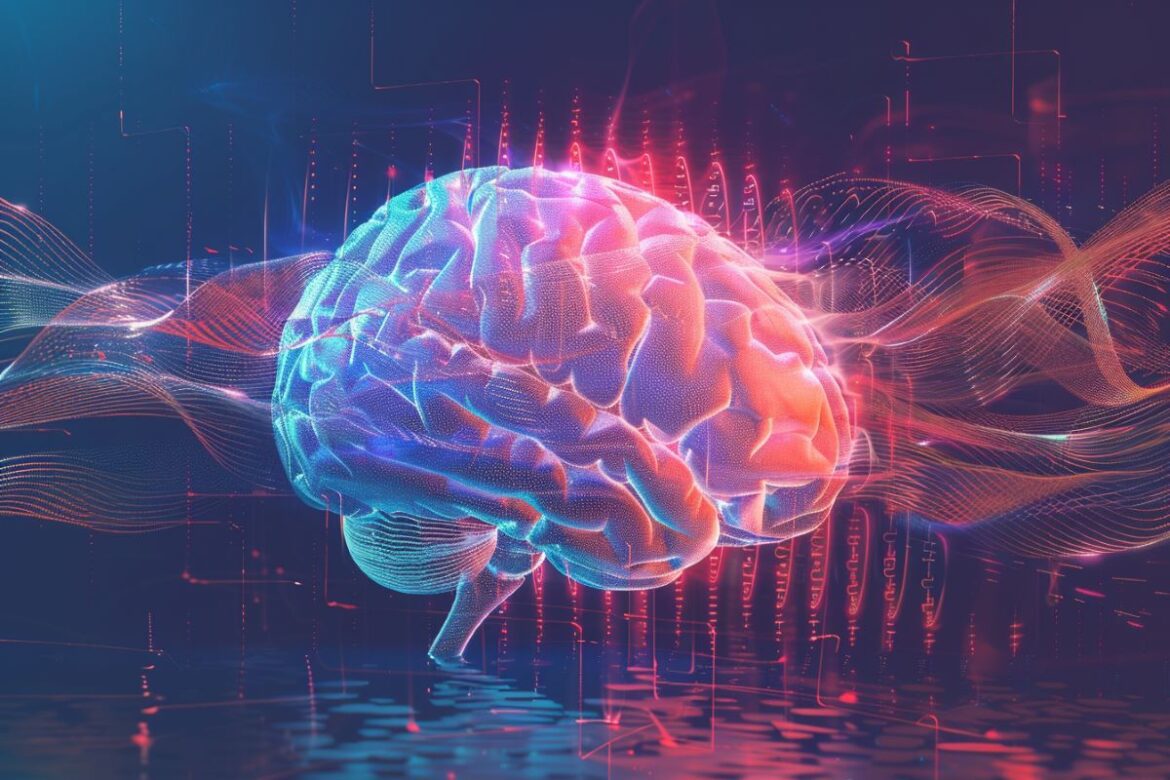summary: A new study has found that using sound to stimulate the brain’s alpha waves may improve sleep in people with dementia. The technology, called alpha closed-loop auditory stimulation (aCLAS), can speed up or slow down the alpha wave rhythm depending on the timing of sounds. This non-invasive approach could be a new treatment for sleep disorders in dementia.
Key Facts:
- Sound stimulation can alter alpha brain waves, which are associated with memory and perception.
- aCLAS technology can speed up or slow down the alpha rhythm depending on the timing of the sound.
- This approach may improve sleep in dementia patients.
sauce: University of Surrey
Using sound to stimulate certain brain waves may improve the quality of sleep in people with dementia and cognitive decline, a new study has found. Sleep problems are a common symptom of dementia, which may affect up to half of all people with the condition.
During the study, researchers from the UK Dementia Research Centre for Care Research and Technology at the University of Surrey and Imperial College London used precisely timed sound stimuli to target a type of brainwave called alpha waves to investigate how the brain responded.
Alpha waves are associated with memory and perception, and changes in their rhythm have been observed in people experiencing cognitive decline and dementia.
Lead author Dr Inés Violante, Senior Lecturer in Psychology and Neuroscience at the University of Surrey, said:
“Alpha oscillations are a hallmark of the brain’s electrical activity, but their role in shaping basic brain functions is not yet fully understood.
“Using sound is a powerful, non-invasive approach to stimulate specific oscillations in the brain. We know that brain oscillations slow down in diseases such as Alzheimer’s, so it is important to find ways to manipulate these oscillations to create tools that can be applied therapeutically.”
In a series of experiments, the researchers used an innovative brain modulation technique called alpha closed-loop auditory stimulation (aCLAS)., The sounds are timed to match the exact phase of the alpha rhythm. To monitor the effectiveness of the stimulation, real-time measurements of electrical activity from the brain are continuously taken to measure how the brain responds. When the wave reached a specific phase, a sound (a burst of pink noise) was played to the participants.
Researchers observed that the alpha wave rhythm sped up or slowed down depending on the phase the sound was being played in. This effect also varied depending on where in the brain the alpha wave oscillations originated.
Dr Henry Hebron, a former PhD student at the University of Surrey and first author of the paper, said:
“What we discovered is that if we use a closed-loop approach to process this rhythm in its own terms, we can manipulate alpha oscillations via sound. Surprisingly, when we performed the aCLAS experiment as participants were falling asleep, we observed that sounds at certain stages prevented them from reaching deeper stages of sleep (without waking them up), while the same sounds at a different stage did not interrupt them.
“There is still a lot to learn about behaviors that depend on neural oscillations, but we think that closed-loop approaches like the one we implemented here may be key.”
Now that the researchers have demonstrated that alpha waves can be influenced with sound, the next step is to explore whether they can be modified in ways that improve cognition and sleep, which could ultimately benefit dementia patients.
Professor Dirk Jan Dyk, Director of the Surrey Sleep Research Centre and Group Leader for the UK Dementia Research Centre for Care Research and Technology, said:
“There is still a lot that remains to be learned about the role of alpha waves in sleep and cognition. This technology could have a huge impact in better understanding and improving sleep function in people with dementia. We are currently investigating the effects of this closed-loop auditory stimulation approach in REM sleep, where alpha waves are present but their role is still unknown.”
This research contributes to the United Nations Sustainable Development Goal 3: Good Health and Well-Being.
About this Auditory Neuroscience and Sleep Research News
author: Natasha Meredith
sauce: University of Surrey
contact: Natasha Meredith – University of Surrey
image: Image courtesy of Neuroscience News
Original Research: Open access.
“A closed-loop auditory stimulation approach selectively modulates alpha oscillations and sleep onset dynamics in humansBy Ines Violante et al. PLOS Biology
Abstract
A closed-loop auditory stimulation approach selectively modulates alpha oscillations and sleep onset dynamics in humans
Alpha oscillations play a key role in managing brain resources, inhibiting neural activity depending on their phase and amplitude, and are altered in many brain disorders.
Developing minimally invasive tools to modulate alpha activity and identifying parameters that determine response to exogenous modulators are essential for the implementation of focused interventions.
We introduce alpha closed-loop auditory stimulation (αCLAS) as an EEG-based method to modulate and investigate human brain rhythms with specificity and selectivity using targeted auditory stimulation.
Through a series of independent experiments, we demonstrated that αCLAS alters alpha oscillation power, frequency, and connectivity in a phase-, amplitude-, and topography-dependent manner.
Using single-pulse αCLAS, we show that the effects of auditory stimuli on alpha oscillations can be explained within the theoretical framework of oscillator theory and phase resetting mechanisms.
Finally, we demonstrate the functional relevance of our approach by showing that αCLAS can interfere with sleep onset dynamics in a phase-dependent manner.
